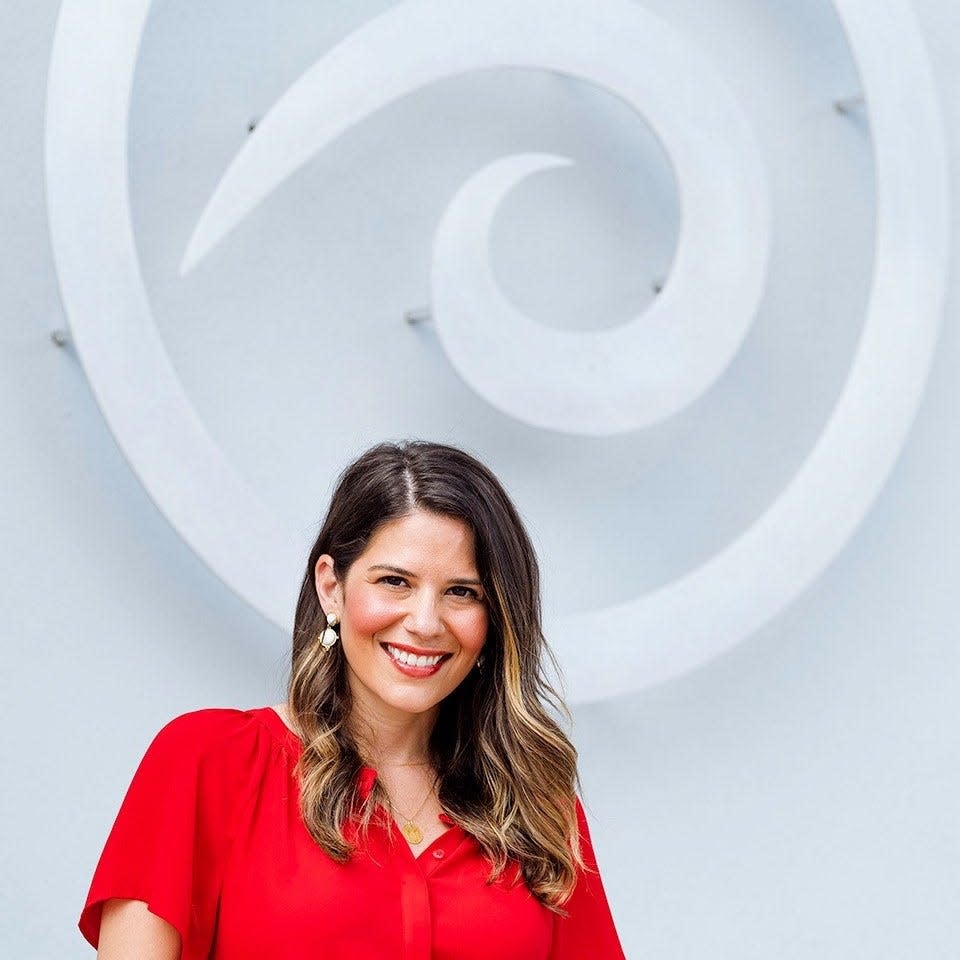Leader of Melbourne business incubator Groundswell discusses her game plan for entrepreneurs
"If at first the idea is not absurd, then there will be no hope for it.”
— Albert Einstein
Ideas are, excuse the cliché, a dime a dozen. Even some pretty good ones come and go, and find a final resting place in wastebasket.
That’s why entrepreneurs are so cool. They’re willing to put time, effort, money and credibility into an idea, and then have the passion to persuade others to join along.
If Meghan Wolfgram of Malabar — chief executive officer and founder of SwiftPaws, a dog lure course system — isn’t an inspiration to budding entrepreneurs on the Space Coast, she should be.
Wolfgram, for many, makes it look easy, partly because of her engaging personality and high energy.
In reality. SwiftPaws has been anything but easy. Get her to tell you about soldering hundreds of pieces of equipment during the early days of SwiftPaws.
So what should the next up-and-coming Mark Zuckerberg or Elon Musk do?
Because not all ideas are good, entrepreneurs probably need that kind of candor, if for nothing else, to allow them to regroup and refocus. They also need help.
There are those that foster entrepreneurs, such as Groundswell Startups, a Melbourne-based incubator site that provides workspace, mentoring and expert advice to those who believe they may be onto something.

We put some questions to Jarin Eisenberg, chief operations officer at Groundswell, about entrepreneurship, and you may be surprised at the answer.
Question: How do I know if I have a good idea?
Eisenberg: Going through the idea validation process — starting to understand the market, the competition, how you might conduct initial customer discovery — is key.
We try to really understand the problem people are looking to solve, and then have several tools to walk them through the idea validation process.
A 'Shark Tank' deal: SwiftPaws, a Melbourne dog-course startup, inks $240K deal with 'Shark Tank' star Lori Greiner
Business incubator thrives: Groundswell Startups spawns high-tech expansion boom in south Melbourne along U.S. 1
Through this process, people often discover that they need to pivot.
Perhaps it has already been done. Or you can solve the problem in a different way to give yourself a market advantage. Or they discover what it will take to bring the idea to market, and it is not something they want to take on.
Through these steps, we can gain a sense if it is a "good idea," and start purposefully curating introductions to mentors, subject-matter experts, product developers, etc., who can further help entrepreneurs hone in on their idea and approach, and start mapping out next steps.
The more people you talk to, the more informed you get on the opportunity and market, the map will change.
Entrepreneurs have to be really good at sorting through a ton of information and feedback, taking that information, and using it in way that guides their decision-making.
Q: Let's say it is good idea. What is my next step?
Is it better to have a working product in hand and then look for funding, or look for funding to develop my idea further?
Eisenberg: It really depends on the product, the market and the opportunity.
For the most part, investors are going to be looking for some sort of traction. They want to see that the product you are selling has a market and people are willing to buy it.
Being able to develop a minimal viable product — an MVP — is key.
Get it into the hands of customers, get feedback, continue to refine.
Pilot programs are great for some, because it can show "proof of concept." Purchase orders are even better, because you are showing traction.
Fundraising is hard. It takes a lot of time, discipline and patience.
A lot of times, companies will use crowdfunding campaigns or do a "friends-and-family" round to pull the resources together to produce an MVP.
We’ve built out a 3D printing and prototyping lab for this exact purpose: 3D printing allows you to efficiently iterate on products, and continue to refine your idea.
Q: If my idea or proposal is basically bunk in your view, do you prefer the "rip-off-the-Band-Aid" approach, or do you let people down easy?
Eisenberg: We are always honest. We want to bring the best resources and guidance to founders as early in the process as possible, so they can make informed decisions, educated risks.
Bringing an idea to life is time-consuming, and can be expensive.
It is better to be honest with our viewpoint, based on our experience, as early in the process as possible.
It doesn’t mean we are always right, or that people will listen, but we are always honest.
Most of the time, the validation process brings to light the potential for the idea, both good and bad, and people make informed decisions based on that.
Q: Of the projects or processes taking place at Groundswell, what are some unique ones that you're excited about?
Eisenberg: There are so many. We have people developing new methods for thermal management; revolutionary rocket fuel; companies that are taking on some of the most complex problems facing the planet today, such as the recycling of textiles to reduce the impact the clothing industry has on the environment.
It is not only the technologies that are being developed in the community that gets me excited, but the way in which our companies and founders tap into each other’s resources and networks to help each other.
They are all deeply invested in seeing each other succeed which makes for a very unique and collaborative environment.
For more information
Groundswell Startups is located at 2412 Irwin St., Melbourne, FL 32901
Its website is: https://swellstartups.com/
Support local journalism and journalists like me. Subscribe today.
This article originally appeared on Florida Today: Groundswell leader discusses her vision to help entrepreneurs succeed

